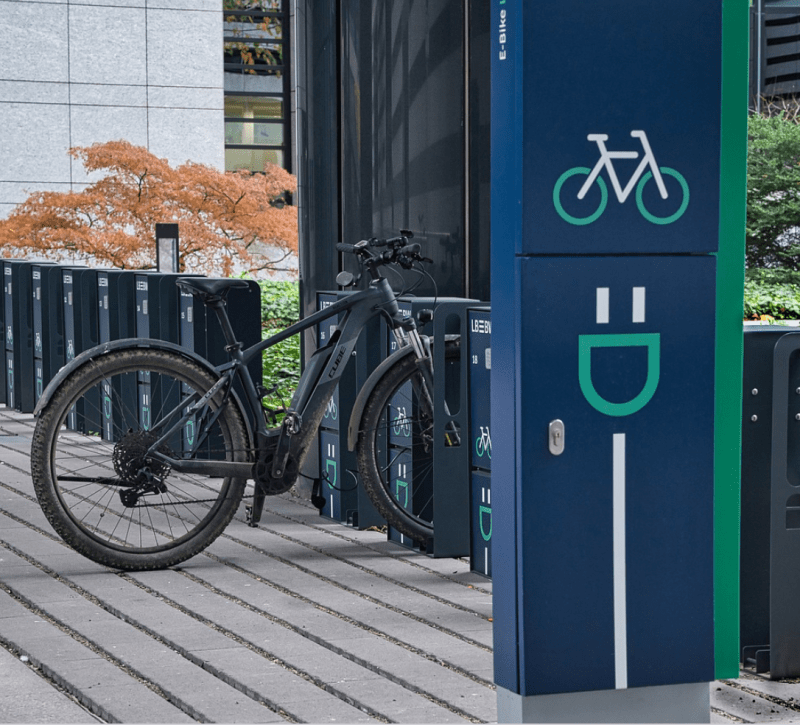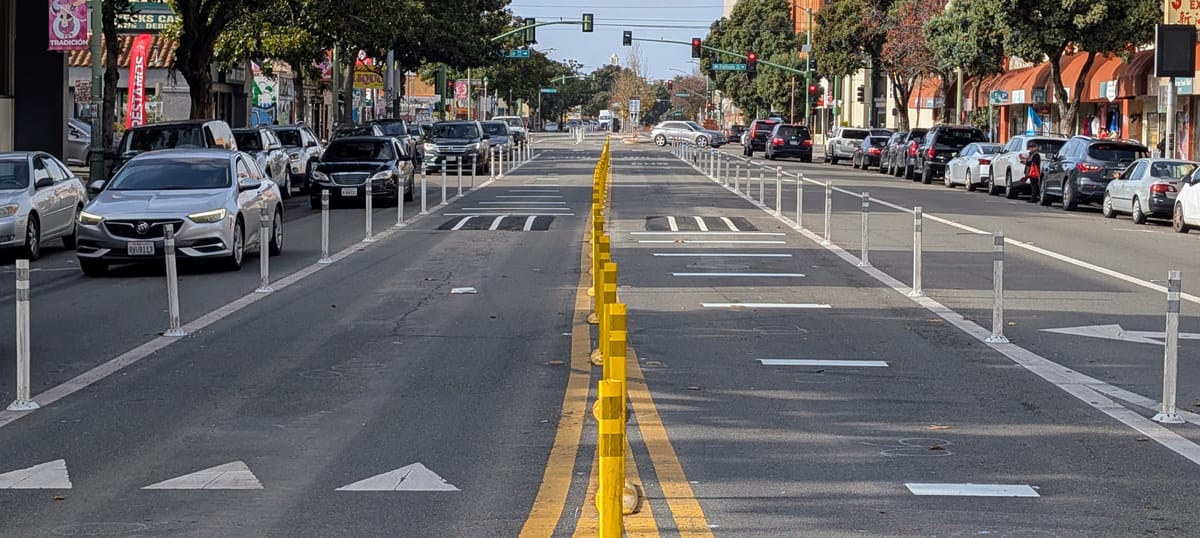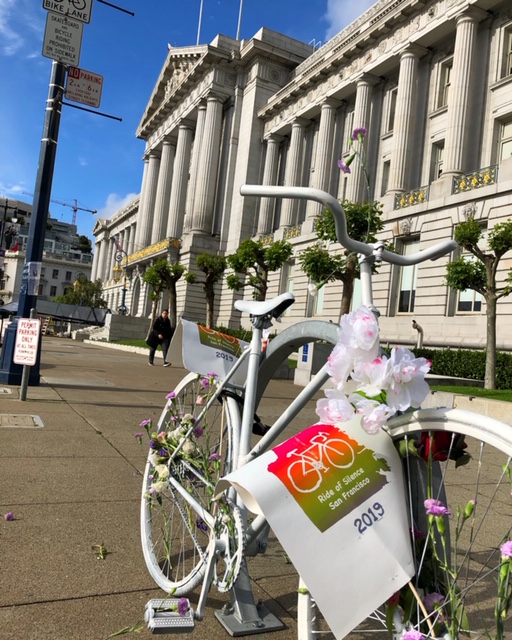U.S. motorists may soon be eligible for up to $12,500 in grants to purchase electric cars, thanks to a new fund folded into the Democrats' reconciliation package — but benefits for e-bike purchasers may be far more modest and aggressively means-tested, unless advocates speak out.
The House Energy and Commerce Committee announced last week that it had passed its portion of the Democrats' $3.5-trillion budget measure, including $4-billion in purachase incentives for electric car buyers. If it passes, it would be among the largest federal investments into vehicle electrification ever, and a significant expansion on the max $7,500 credit drivers can get now.
But notably absent from that bill was a fund earmarked specifically for the purchase of the type of electric vehicles that experts agree have the strongest potential to curb the impacts of climate change at the local scale: the revolutionary electric bicycle.
Advocates were careful to note that the omission doesn't necessarily mean that e-bikes would be left out the final package, because a range of Congressional committees are still hashing out their own portions of the mega-bill. But some fear the scale of the benefit is in danger of being diminished, especially if centrist Democrats insist on downsizing the package — and if the aggressive means-testing policies being proposed by the House Ways and Means Committee on the so-far theoretical incentive are any indication, it's not looking good.
Here's where things stand right now.
What's in it for drivers
The $4 billion in EV incentives outlined in the committee's bill wouldn't be an unrestricted free-for-all — and most advocates think the proposed program would make a meaningful yet reasonable investment into cleaning up the fleet.
"It’s a big step down from [the $100 billion in consumer EV credits proposed under] Biden's American Jobs Plan, but that's not all bad," said Benito Pérez, policy director for Transportation for America. "You have to remember that EV incentives weren't in the Bipartisan Infrastructure Bill at all. The committees said, 'Okay, we at least need to make another, incremental step towards achieving this important priority.'"
In separate legislation released in early September, the House Ways and Means Committee outlined the guardrails that would be placed around the credits, which would range from $4,000 to $12,500 depending on the age and battery capacity of the vehicle, with extra money given for the purchase of cars manufactured in the U.S. or by union crews. Drivers who maximize their credit would get $4,500 more than the $7,500 they get from the feds right now.
New House-Proposed EV Incentives Benefit Lobbyists, Not The American Taxpayer https://t.co/bzfx1bPiiO
— CleanTechnica (@cleantechnica) September 14, 2021
The committee also set a generous cap on the cost of qualified vehicles — the $80,000 Electric Hummer SUV, for instance, is a little beyond the $69,000 max price for that vehicle class, though pick-up trucks priced up to a staggering $74,000 would be fair game — while shrinking the benefit gradually for single-income households with an adjusted gross income of $400,000 or more, with higher caps for married couples.
Estimates aren't in yet on how many gas-powered cars this program might actually take off the road, exactly, but it's safe to say the number could fall anywhere between 320,000 and 1 million — a sliver of the staggering 280 million cars in America's bloated private vehicle fleet, which makes it even more critical that the rest of the package prioritize vehicle miles traveled reduction.
The bill also includes at least $11 billion in funds to electrify buses, trucks, and government-owned cars, with billions earmarked specifically for vehicles that will run primarily in low-income and highly polluted communities; there's also $3 billion for charging infrastructure at publicly accessible locations, at least a quarter of which will be reserved for disadvantaged neighborhoods.
What's in it for cyclists
E-bikes don't yet have a dedicated fund in the reconciliation package — but there are already have some pretty strict rules about how those hypothetical funds would be spent.
In the same House Ways and Means committee bill, legislators slashed the refundable tax credit proposed in the popular E-BIKE Act from 30 percent of the bike's purchase price to just 15 percent, capped the maximum credit at $1,500, and disqualified those who would buy a vehicle costing more than $8,000 from participating in the program at all.
Worse, the income limits are far stricter on the e-bike program, with credits beginning to phase out at $75,000 of adjusted gross income for singles — an amount that's less than a quarter of the income limit for a single driver.
Or, to put a finer point on it: a single driver making an adjusted income of $400,000 — nine times the U.S. median AGI — could get a $12,500 discount on a $68,999 SUV. But no one in America, no matter his or her income, will qualify for a credit for an $8,001 e-cargo bike to replace that SUV.
This is why I don't like a limit on the price of qualifying e-bikes for the e-bike tax credit
— Ken McLeod 🚴🚵🏃🚲 (@Kenmcld) September 17, 2021
This bike is >$8k (https://t.co/IAeeubLbw4) and excluded under current language: https://t.co/9Mxbwe0vyS
Credit is capped at $1,500, why does it matter if an e-bike costs more? https://t.co/8DYdAUvdKQ
In an ironic twist, advocates suspect that committee's strict new rules may have to do with recent federal estimates that projected that the new e-bike incentive would cost the government $7.4 billion over 10 years, compared to $15.6 billion for the super-charged e-car incentives — essentially meaning the bike program would be too popular to properly fund. (The report does not calculate the myriad costs to the government that would be recouped by replacing replacing car trips with e-bike journeys.)
"Right now, we’re advocating for a return to the 30-percent credit, even if that means reducing the period for which the credit would be available — because if it succeeds, [lawmakers] can always renew it," said Ken McLeod, policy director for the League of American Bicyclists. "Particularly for people who are earning a lower income, that difference between 15 and 30 percent is really substantial. But if we can get this passed at that higher level, we think [lawmakers] will see the value of this program and build the case for extending it."
McLeod also praised the Committee's recommendation to reinstate the bicycle commuter benefit that was suspended during the Trump administration and expand it from $20 per month to $52.50. But he's frustrated that the proposal didn't go further — or include purchase incentives for bikes that run on people-power alone.
"I love that we’re getting an electric bike tax credit, but we don’t have the same thing for acoustic bikes," added McLeod. "Everything we’ve hard from legislators is, basically, that research shows that e-bikes are much more likely to replace car trips. But [increasing the fleet of] normal bikes carries all the same benefits — safer roads, cleaner skies, more people who can stop in at their local shops. We really should do both."





